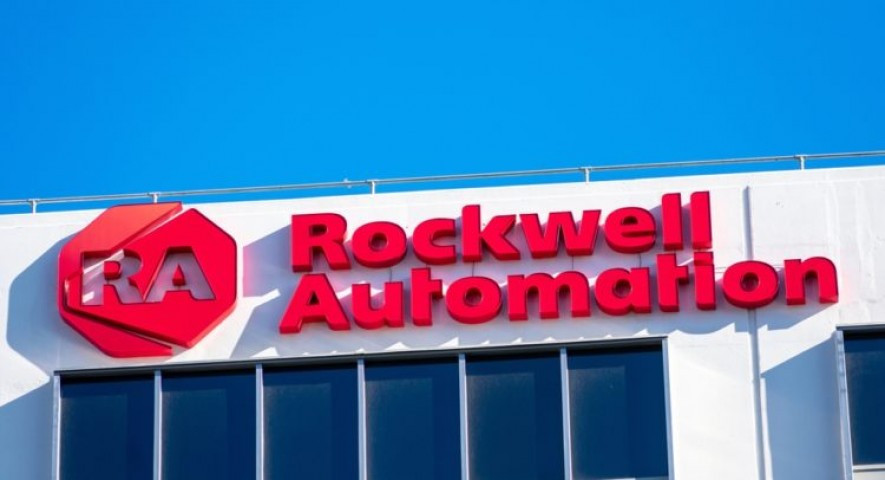Rockwell Automation Reports Q3 Earnings: Sales and Earnings Decline, Outlook Cut
Rockwell Automation Inc. (ROK) reported a decline in both sales and earnings for the third quarter of fiscal 2024, leading the company to update its full-year guidance.
The company reported third quarter sales of $2,051 million, down 8.4% from $2,239 million in the same period last year. This decline was attributed to lower sales volume and unfavorable market conditions. Net income attributable to Rockwell Automation was $232 million, or $2.02 per share, a significant decrease from $400 million, or $3.45 per share, in the third quarter of fiscal 2023.
Segment Performance
The Intelligent Devices segment saw a slight decrease in sales to $957 million, down 1.1% year over year. However, segment operating earnings increased to $194 million, driven by positive price/cost and cost reduction actions.
The Software & Control segment experienced a significant decline in sales, down 31.8% to $512 million. Segment operating earnings also fell to $121 million, primarily due to lower sales volume.
Conversely, the Lifecycle Services segment reported an 11.8% increase in sales to $581 million, with segment operating earnings rising to $112 million, driven by higher sales volume and strong project execution.
Revenue and Earnings Guidance
Despite the overall decline in sales, Rockwell Automation reported a 17% increase in total annual recurring revenue (ARR), highlighting the company's focus on growing its recurring revenue business. However, the company faced challenges such as weaker consumer demand, high interest rates, and policy uncertainty, which led to project delays and lower-than-expected order growth.
Rockwell Automation updated its fiscal 2024 guidance, projecting reported sales growth to decline by approximately 8.5% and organic sales growth to decline by approximately 10.0%. The company also revised its diluted EPS guidance to approximately $8.32 and adjusted EPS guidance to approximately $9.60.
Financial Highlights
Rockwell Automation's gross profit for the third quarter was $794.8 million, down from $915.4 million in the same period last year. The company's pre-tax margin decreased to 12.4% from 21.1% a year ago, primarily due to lower sales volume and restructuring charges.
As of June 30, 2024, Rockwell Automation reported cash and cash equivalents of $406.7 million, down from $1,071.8 million at the end of September 2023. The company's total liabilities stood at $7,685.2 million, with shareowners' equity attributable to Rockwell Automation at $3,325.7 million.
Cash flow generated by operating activities in the third quarter was $279 million, compared to $282 million in the same period last year. Free cash flow was $238 million, slightly down from $240 million a year ago.
Outlook and Key Takeaways
Despite the challenges, Rockwell Automation remains optimistic about its long-term prospects, focusing on productivity actions and pricing to drive margin growth. The company expects continued sequential order growth in the fourth quarter and into the next fiscal year, albeit at a more gradual pace than initially anticipated.
Key takeaways from Rockwell Automation's Q3 earnings include:
- Sales and earnings declined due to lower sales volume and unfavorable market conditions.
- The company updated its full-year guidance, projecting further sales declines and lower EPS.
- The company remains optimistic about its long-term prospects, focusing on productivity actions and pricing to drive margin growth.
What's Next for Rockwell Automation?
Investors will be watching closely to see how Rockwell Automation navigates the challenging economic environment and whether it can deliver on its commitment to driving margin growth. The company's ability to execute on its strategy and capitalize on the growing demand for automation solutions will be crucial to its future success.
The Automation Sector: A Bright Spot in a Challenging Economic Landscape
Despite the recent downturn in the industrial automation sector, Rockwell Automation remains a leading player in a growing market. The demand for automation solutions is expected to continue to increase as businesses seek to improve efficiency and productivity. Rockwell Automation is well-positioned to capitalize on this trend with its comprehensive product portfolio and strong global presence.
Is Rockwell Automation a Buy, Sell, or Hold?
Given the company's recent earnings performance and the challenging economic environment, investors may want to take a cautious approach to Rockwell Automation. While the company remains a leader in the automation sector, its near-term prospects may be uncertain. However, its long-term growth potential remains attractive, making it a potential investment opportunity for investors with a longer-term outlook.
Investing in Rockwell Automation: A Deep Dive
Investors looking to make informed decisions about investing in Rockwell Automation need to consider various factors beyond its recent earnings performance. A thorough analysis should include:
- Valuation: How does Rockwell Automation's current share price compare to its historical valuations and those of its peers?
- Business Model: What are Rockwell Automation's core strengths and weaknesses? How does its business model stand out in the automation sector?
- Competitive Landscape: How does Rockwell Automation compete against its rivals? What are its key differentiators?
- Growth Prospects: What are the long-term growth opportunities for Rockwell Automation and the automation sector as a whole?
Conclusion: Rockwell Automation: A Story in Motion
Rockwell Automation is a company with a long history and a bright future. The company is navigating a challenging economic environment, but its long-term growth potential remains strong. Investors who carefully consider the factors outlined above can make informed decisions about whether Rockwell Automation is a good fit for their portfolio.



















